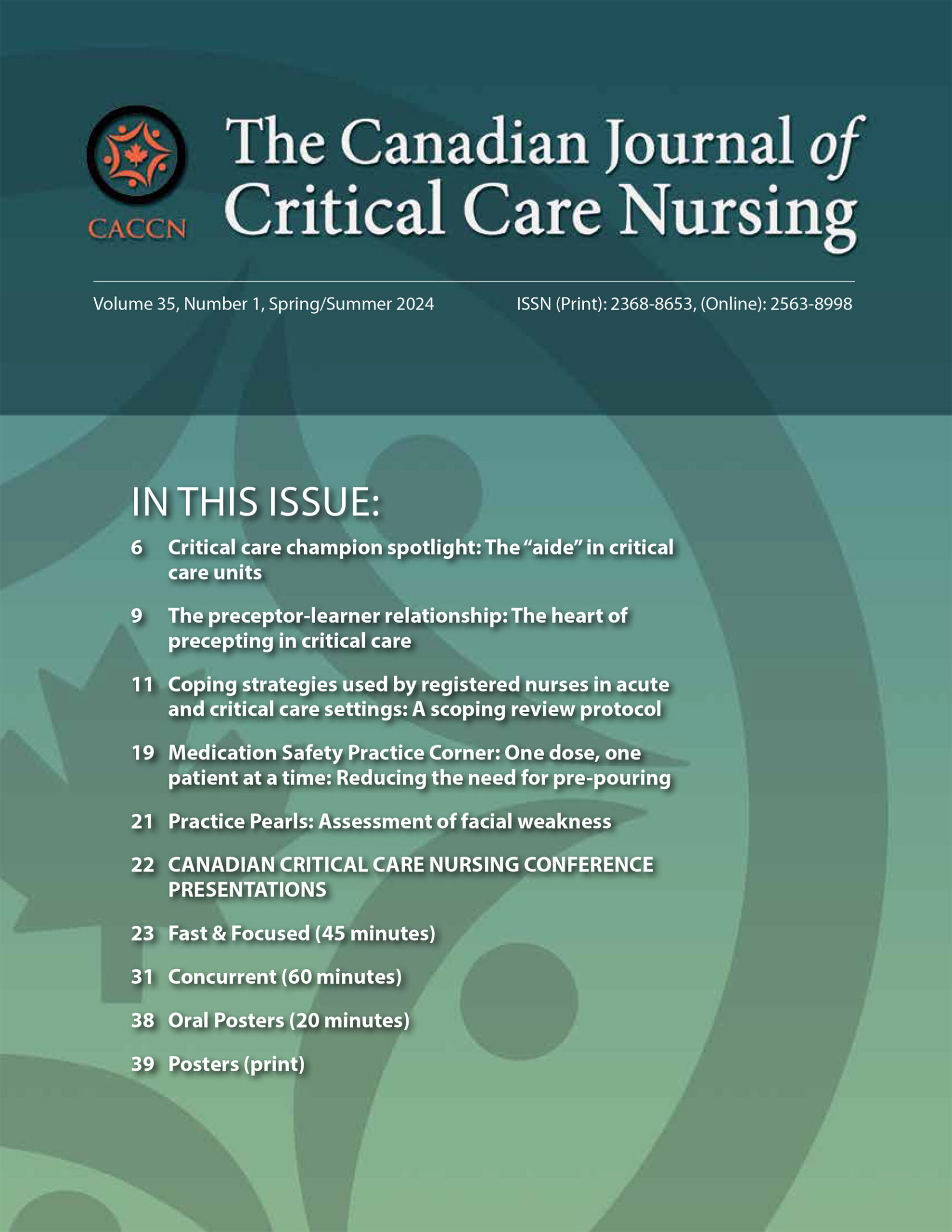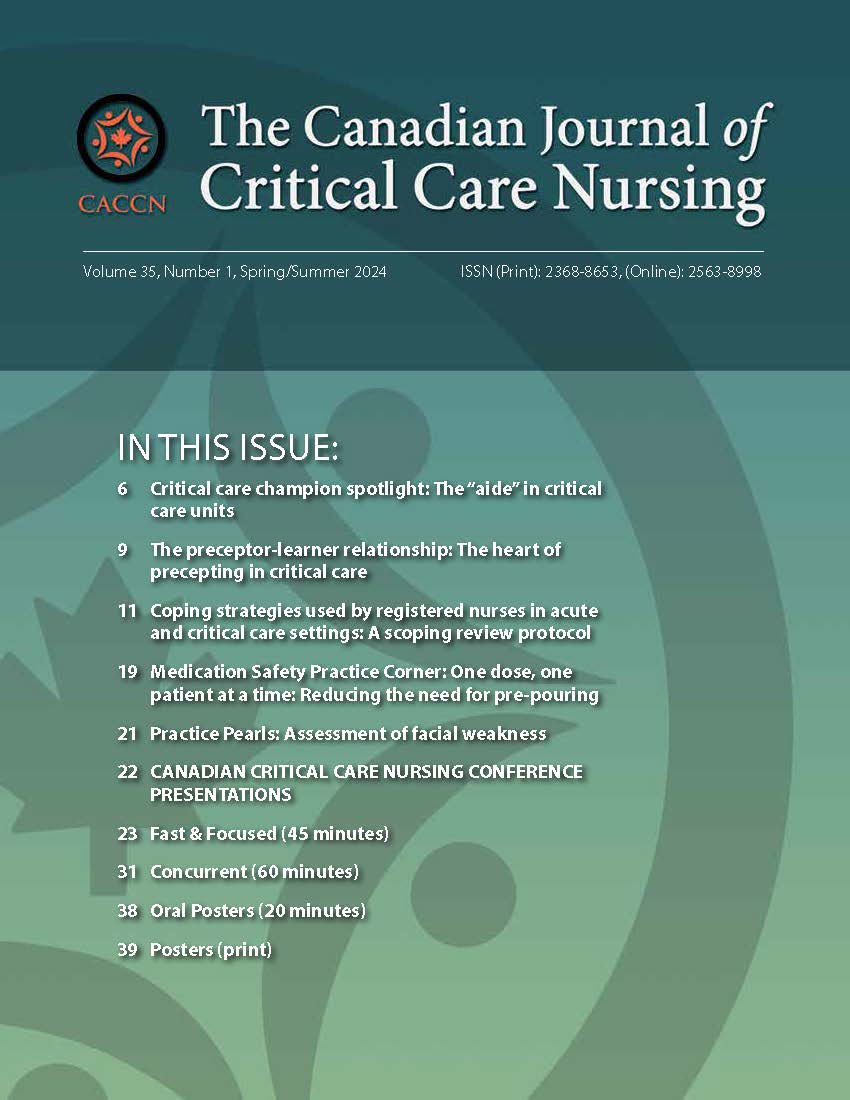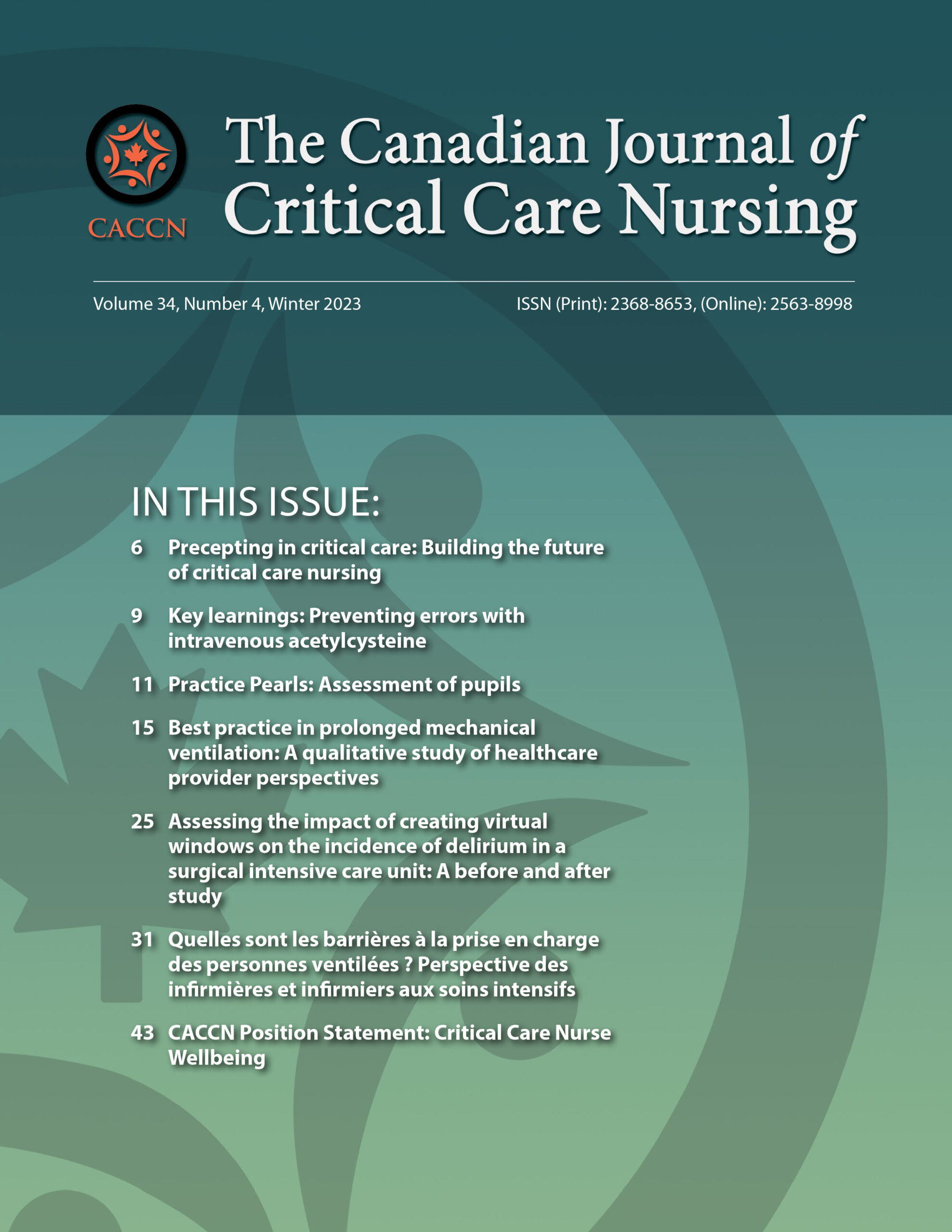A call for standardized national guidelines on QT/QTc monitoring in Canada
Kathleen Hutton, MA, and Darlene Hutton, MSN, RN
Background: With QT-prolonging drugs being trialed for the treatment of COVID-19, national health associations allude to the importance of proficient QT interval assessment, however in Canada, there is no policy in place that clearly identifies a single method for routine QT monitoring.
Aim: To demonstrate the need for a clear Canadian guideline for the measurement of the QT/QTc interval and to advocate for a standardized approach to education.
Methods: This paper uses a medical anthropological approach to scale this practice gap from the individual provider to the institutions which govern practice and education.Nurses and emergency medical personnel from hospitals across Canada were polled with questionnaires on their confidence and knowledge of assessing the QT/QTc interval. We seek to identify causes for the widespread lack of confidence that goes beyond the context of nursing and is interdisciplinary in nature.
Findings: Of the 292 participants who were polled, roughly seventy-five percent report measuring the QT interval. However, over fifty percent of participants are not confident in their measurement. Although critical care nurses report the highest levels of confidence, the rate of correct answers amongst the whole of participants on knowledge-based questions is shockingly low (only nine percent attempted to provide a value for the QTc; thirty-four percent of those who were unsure of the normal QTc say they were not taught). Ninety percent of participants report they do not analyze the QTc, with critical care nurses accounting for thirty-four percent of participants.
Conclusion: The lack of consensus on a QTc formula and the absence of clear guidelines on this well-documented issue exacerbate the continued gap in practice observed in our findings. We urge leading organizations to create a national guideline that supports a standardized approach to QT/QTc measurement that can be taught to and used by not only critical care nurses, but everyone in healthcare who provides cardiac monitoring.





